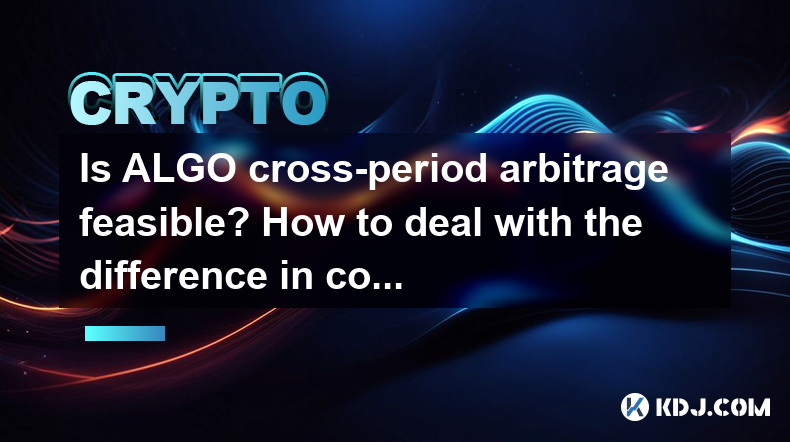-
 Bitcoin
Bitcoin $105,734.0170
-1.51% -
 Ethereum
Ethereum $2,414.7328
-3.26% -
 Tether USDt
Tether USDt $1.0002
0.00% -
 XRP
XRP $2.1748
-2.62% -
 BNB
BNB $647.5663
-1.72% -
 Solana
Solana $148.1710
-3.81% -
 USDC
USDC $0.9999
-0.01% -
 TRON
TRON $0.2799
-0.02% -
 Dogecoin
Dogecoin $0.1586
-4.17% -
 Cardano
Cardano $0.5440
-5.03% -
 Hyperliquid
Hyperliquid $37.0680
-6.59% -
 Bitcoin Cash
Bitcoin Cash $501.2052
-4.01% -
 Sui
Sui $2.6846
-3.47% -
 Chainlink
Chainlink $12.8488
-3.38% -
 UNUS SED LEO
UNUS SED LEO $8.9480
-1.51% -
 Avalanche
Avalanche $17.2059
-3.87% -
 Stellar
Stellar $0.2270
-4.75% -
 Toncoin
Toncoin $2.7889
-3.93% -
 Shiba Inu
Shiba Inu $0.0...01126
-1.76% -
 Litecoin
Litecoin $83.6893
-3.36% -
 Hedera
Hedera $0.1445
-4.49% -
 Monero
Monero $312.4014
-2.58% -
 Dai
Dai $1.0000
0.00% -
 Ethena USDe
Ethena USDe $1.0001
-0.01% -
 Polkadot
Polkadot $3.2920
-3.32% -
 Bitget Token
Bitget Token $4.4629
-1.81% -
 Uniswap
Uniswap $6.5386
-8.42% -
 Aave
Aave $260.3780
-6.01% -
 Pepe
Pepe $0.0...09308
-4.54% -
 Pi
Pi $0.4864
-3.04%
Is ALGO cross-period arbitrage feasible? How to deal with the difference in contract prices?
ALGO cross-period arbitrage involves exploiting price differences across time or exchanges, requiring quick execution and careful management of contract price variances.
May 03, 2025 at 01:21 am

Is ALGO cross-period arbitrage feasible? How to deal with the difference in contract prices?
Cross-period arbitrage in the cryptocurrency market, specifically with ALGO, involves taking advantage of price differences of the same asset across different time periods or exchanges. This strategy can be particularly intriguing for traders looking to profit from inefficiencies in the market. In this article, we will delve into the feasibility of ALGO cross-period arbitrage and explore how to manage the differences in contract prices effectively.
Understanding ALGO Cross-Period Arbitrage
ALGO cross-period arbitrage refers to the practice of buying ALGO at a lower price in one period and selling it at a higher price in another period. This can occur across different exchanges or within the same exchange but at different times. The key to successful arbitrage is identifying these price discrepancies quickly and executing trades efficiently.
To determine the feasibility of ALGO cross-period arbitrage, several factors need to be considered:
- Market Liquidity: High liquidity is crucial for executing trades without significantly affecting the market price.
- Transaction Costs: Fees associated with trading, including exchange fees and withdrawal fees, can erode potential profits.
- Speed of Execution: The ability to execute trades quickly is essential to capitalize on fleeting arbitrage opportunities.
- Regulatory Environment: Different regions may have varying regulations that impact the feasibility of arbitrage strategies.
Identifying Price Differences
The first step in executing ALGO cross-period arbitrage is to identify price differences. This can be done through:
- Real-time Data Monitoring: Utilize tools and platforms that provide real-time data feeds from multiple exchanges. This allows you to track the price of ALGO across different periods and exchanges.
- Automated Alerts: Set up automated alerts to notify you when significant price discrepancies are detected. This can help you react quickly to potential arbitrage opportunities.
- Historical Data Analysis: Analyzing historical price data can provide insights into patterns and trends that may indicate future arbitrage opportunities.
Executing ALGO Cross-Period Arbitrage
Once a price difference is identified, the next step is to execute the arbitrage trade. Here are the detailed steps involved:
- Select the Appropriate Exchanges: Choose exchanges that offer the most favorable conditions for arbitrage, including low fees and high liquidity.
- Fund Your Accounts: Ensure that you have sufficient funds in your exchange accounts to execute the trades. This may involve transferring funds between exchanges.
- Place the Buy Order: Execute a buy order for ALGO on the exchange where the price is lower.
- Place the Sell Order: Simultaneously, place a sell order for ALGO on the exchange where the price is higher.
- Monitor the Trades: Keep a close eye on the trades to ensure they are executed as planned. Adjust your strategy if necessary to mitigate any risks.
Managing Contract Price Differences
Dealing with the differences in contract prices is a critical aspect of ALGO cross-period arbitrage. Here are some strategies to manage these differences effectively:
- Hedging: Use hedging strategies to protect against potential losses due to price fluctuations. This can involve taking positions in other cryptocurrencies or financial instruments that are inversely correlated with ALGO.
- Diversification: Spread your arbitrage activities across multiple cryptocurrencies to reduce the risk associated with focusing on a single asset.
- Stop-Loss Orders: Implement stop-loss orders to limit potential losses if the market moves against your arbitrage position.
- Continuous Monitoring: Constantly monitor the market to identify new arbitrage opportunities and adjust your positions accordingly.
Tools and Platforms for ALGO Arbitrage
To facilitate ALGO cross-period arbitrage, several tools and platforms can be utilized:
- Arbitrage Bots: Automated trading bots designed specifically for arbitrage can help you execute trades quickly and efficiently.
- API Integration: Many exchanges offer APIs that allow you to integrate real-time data feeds into your trading platform, enabling faster decision-making.
- Arbitrage Calculators: Use online arbitrage calculators to quickly assess the potential profitability of an arbitrage opportunity.
- Trading Software: Advanced trading software can provide real-time alerts, historical data analysis, and automated trading capabilities.
Risks and Challenges
While ALGO cross-period arbitrage can be profitable, it is not without risks and challenges. Some of the key considerations include:
- Market Volatility: Cryptocurrency markets are known for their high volatility, which can quickly erode potential arbitrage profits.
- Exchange Risks: The risk of exchange hacks, outages, or regulatory crackdowns can impact the feasibility of arbitrage strategies.
- Slippage: The difference between the expected price of a trade and the price at which the trade is executed can affect profitability.
- Competition: As more traders engage in arbitrage, the opportunities for profit may diminish due to increased competition.
Frequently Asked Questions
Q1: Can ALGO cross-period arbitrage be automated completely?
A1: While many aspects of ALGO cross-period arbitrage can be automated using trading bots and software, human oversight is still necessary to monitor market conditions and adjust strategies as needed. Automation can help with execution speed and efficiency, but it is not a substitute for careful analysis and risk management.
Q2: How do regulatory differences affect ALGO cross-period arbitrage?
A2: Regulatory differences across regions can impact the feasibility of ALGO cross-period arbitrage. Some regions may have stricter regulations on cryptocurrency trading, which can limit the exchanges available for arbitrage or impose additional compliance requirements. Traders must be aware of these regulatory environments and adapt their strategies accordingly.
Q3: What is the impact of transaction fees on ALGO cross-period arbitrage profitability?
A3: Transaction fees can significantly impact the profitability of ALGO cross-period arbitrage. High fees can erode potential profits, especially if the price differences between periods are small. Traders should choose exchanges with low fees and consider the cumulative effect of fees across multiple trades.
Q4: How can I minimize the risk of slippage in ALGO cross-period arbitrage?
A4: To minimize the risk of slippage, traders can use limit orders instead of market orders to control the price at which trades are executed. Additionally, trading during periods of high liquidity can help reduce the impact of slippage. Monitoring market depth and order book data can also provide insights into potential slippage risks.
Disclaimer:info@kdj.com
The information provided is not trading advice. kdj.com does not assume any responsibility for any investments made based on the information provided in this article. Cryptocurrencies are highly volatile and it is highly recommended that you invest with caution after thorough research!
If you believe that the content used on this website infringes your copyright, please contact us immediately (info@kdj.com) and we will delete it promptly.
- Bitcoin Price Rollercoaster, ICO Mania, and the Fear of Missing Out (FOMO)
- 2025-07-02 13:10:12
- Coinbase, Crypto, and Amazon: A New Era of Financial Integration
- 2025-07-02 12:30:12
- BlackRock, Crypto.com, and Tokenization: A New Era for TradFi and DeFi
- 2025-07-02 13:10:12
- Meme Coins in 2025: Viral Power and Investment Potential
- 2025-07-02 13:30:12
- Binance, Airdrops, and Market Share: A 2025 Crypto Powerhouse
- 2025-07-02 12:30:12
- Tom Lee, MicroStrategy, and Ethereum: Bullish Signals and Strategic Plays
- 2025-07-02 13:30:12
Related knowledge

How to customize USDT TRC20 mining fees? Flexible adjustment tutorial
Jun 13,2025 at 01:42am
Understanding USDT TRC20 Mining FeesMining fees on the TRON (TRC20) network are essential for processing transactions. Unlike Bitcoin or Ethereum, where miners directly validate transactions, TRON uses a delegated proof-of-stake (DPoS) mechanism. However, users still need to pay bandwidth and energy fees, which are collectively referred to as 'mining fe...

USDT TRC20 transaction is stuck? Solution summary
Jun 14,2025 at 11:15pm
Understanding USDT TRC20 TransactionsWhen users mention that a USDT TRC20 transaction is stuck, they typically refer to a situation where the transfer of Tether (USDT) on the TRON blockchain has not been confirmed for an extended period. This issue may arise due to various reasons such as network congestion, insufficient transaction fees, or wallet-rela...

How to cancel USDT TRC20 unconfirmed transactions? Operation guide
Jun 13,2025 at 11:01pm
Understanding USDT TRC20 Unconfirmed TransactionsWhen dealing with USDT TRC20 transactions, it’s crucial to understand what an unconfirmed transaction means. An unconfirmed transaction is one that has been broadcasted to the blockchain network but hasn’t yet been included in a block. This typically occurs due to low transaction fees or network congestio...

How to check USDT TRC20 balance? Introduction to multiple query methods
Jun 21,2025 at 02:42am
Understanding USDT TRC20 and Its ImportanceUSDT (Tether) is one of the most widely used stablecoins in the cryptocurrency market. It exists on multiple blockchain networks, including TRC20, which operates on the Tron (TRX) network. Checking your USDT TRC20 balance accurately is crucial for users who hold or transact with this asset. Whether you're sendi...

What to do if USDT TRC20 transfers are congested? Speed up trading skills
Jun 13,2025 at 09:56am
Understanding USDT TRC20 Transfer CongestionWhen transferring USDT TRC20, users may occasionally experience delays or congestion. This typically occurs due to network overload on the TRON blockchain, which hosts the TRC20 version of Tether. Unlike the ERC20 variant (which runs on Ethereum), TRC20 transactions are generally faster and cheaper, but during...

The relationship between USDT TRC20 and TRON chain: technical background analysis
Jun 12,2025 at 01:28pm
What is USDT TRC20?USDT TRC20 refers to the Tether (USDT) token issued on the TRON blockchain using the TRC-20 standard. Unlike the more commonly known ERC-20 version of USDT (which runs on Ethereum), the TRC-20 variant leverages the TRON network's infrastructure for faster and cheaper transactions. The emergence of this version came as part of Tether’s...

How to customize USDT TRC20 mining fees? Flexible adjustment tutorial
Jun 13,2025 at 01:42am
Understanding USDT TRC20 Mining FeesMining fees on the TRON (TRC20) network are essential for processing transactions. Unlike Bitcoin or Ethereum, where miners directly validate transactions, TRON uses a delegated proof-of-stake (DPoS) mechanism. However, users still need to pay bandwidth and energy fees, which are collectively referred to as 'mining fe...

USDT TRC20 transaction is stuck? Solution summary
Jun 14,2025 at 11:15pm
Understanding USDT TRC20 TransactionsWhen users mention that a USDT TRC20 transaction is stuck, they typically refer to a situation where the transfer of Tether (USDT) on the TRON blockchain has not been confirmed for an extended period. This issue may arise due to various reasons such as network congestion, insufficient transaction fees, or wallet-rela...

How to cancel USDT TRC20 unconfirmed transactions? Operation guide
Jun 13,2025 at 11:01pm
Understanding USDT TRC20 Unconfirmed TransactionsWhen dealing with USDT TRC20 transactions, it’s crucial to understand what an unconfirmed transaction means. An unconfirmed transaction is one that has been broadcasted to the blockchain network but hasn’t yet been included in a block. This typically occurs due to low transaction fees or network congestio...

How to check USDT TRC20 balance? Introduction to multiple query methods
Jun 21,2025 at 02:42am
Understanding USDT TRC20 and Its ImportanceUSDT (Tether) is one of the most widely used stablecoins in the cryptocurrency market. It exists on multiple blockchain networks, including TRC20, which operates on the Tron (TRX) network. Checking your USDT TRC20 balance accurately is crucial for users who hold or transact with this asset. Whether you're sendi...

What to do if USDT TRC20 transfers are congested? Speed up trading skills
Jun 13,2025 at 09:56am
Understanding USDT TRC20 Transfer CongestionWhen transferring USDT TRC20, users may occasionally experience delays or congestion. This typically occurs due to network overload on the TRON blockchain, which hosts the TRC20 version of Tether. Unlike the ERC20 variant (which runs on Ethereum), TRC20 transactions are generally faster and cheaper, but during...

The relationship between USDT TRC20 and TRON chain: technical background analysis
Jun 12,2025 at 01:28pm
What is USDT TRC20?USDT TRC20 refers to the Tether (USDT) token issued on the TRON blockchain using the TRC-20 standard. Unlike the more commonly known ERC-20 version of USDT (which runs on Ethereum), the TRC-20 variant leverages the TRON network's infrastructure for faster and cheaper transactions. The emergence of this version came as part of Tether’s...
See all articles

























































































